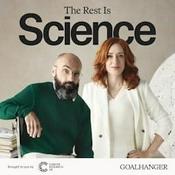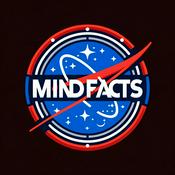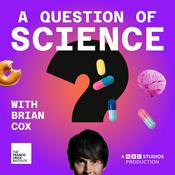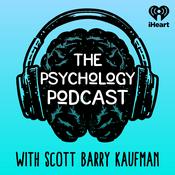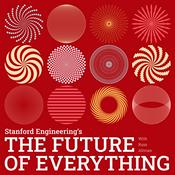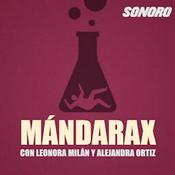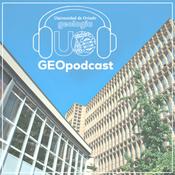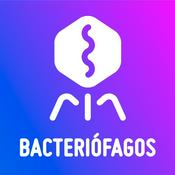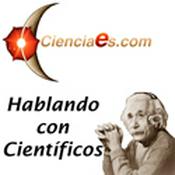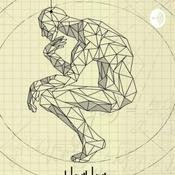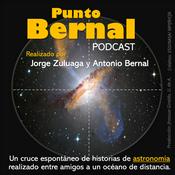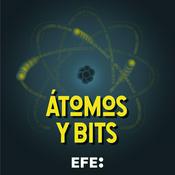Episodios disponibles
5 de 675
- CARTA: The Evolution of Human Altruism - Sarah Hrdy - How Humans Became Such ‘Other-Regarding’ ApesSarah Hrdy is currently professor emerita at the University of California, Davis. She is a renowned anthropologist and primate sociobiologist who seeks to understand, step by Darwinian step, how apes could have evolved to imagine and care about what the lives of others might be like. Series: "CARTA - Center for Academic Research and Training in Anthropogeny" [Science] [Show ID: 21286]--------23:21
- CARTA: The Genetics of Humanness: Ajiit Varki - Human-Specific Changes in Siglec GenesAjit Varki, Distinguished Professor in the Departments of Medicine and Cellular & Molecular Medicine, Co-Director of CARTA, and Co-Director of the Glycobiology Research and Training Center at the University of California, San Diego, focuses on a family of cell surface sugars called the sialic acids, and their roles in biology, evolution and disease. Series: "CARTA - Center for Academic Research and Training in Anthropogeny" [Science] [Show ID: 21987]--------17:55
- CARTA: The Genetics of Humanness: Genevieve Konopka -Human-Specific Signaling NetworksGenevieve Konopka is an Assistant Professor of Neuroscience at UT Southwestern Medical Center. The focus of her research is elucidating how developmental signaling pathways are disrupted in neuropsychiatric illnesses, and identifying human-specific pathways that are vulnerable to neuropsychiatric disease. Series: "CARTA - Center for Academic Research and Training in Anthropogeny" [Science] [Show ID: 21986]--------23:15
- CARTA: The Genetics of Humanness: Elaine Mardis - The Orangu-tan GenomeElaine Mardis, Associate Professor of Genetics at Washington University and Senior Research Scientist at Bio-Rad Laboratories, explores the orangutan genome. Series: "CARTA - Center for Academic Research and Training in Anthropogeny" [Science] [Show ID: 21980]--------16:05
- CARTA: The Evolution of Human Altruism - Christopher Boehm -Social Selection Versus the Notorious Free RiderChristopher Boehm is Professor of Biological Sciences & Anthropology and Director of the Goodall Research Center at the University of Southern California. He is a cultural anthropologist with a subspecialty in primatology, who researches conflict resolution, altruism, moral origins, and feuding and warfare. Series: "CARTA - Center for Academic Research and Training in Anthropogeny" [Science] [Show ID: 21281]--------20:20
Más podcasts de Ciencias
Podcasts a la moda de Ciencias
Acerca de CARTA - Anthropogeny (Audio)
Multidisciplinary researchers explore the origins of humanity and the many facets of what makes us human.
Sitio web del podcastEscucha CARTA - Anthropogeny (Audio), A hombros de gigantes y muchos más podcasts de todo el mundo con la aplicación de radio.es
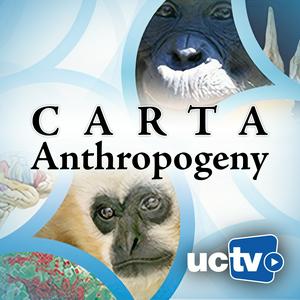
Descarga la app gratuita: radio.es
- Añadir radios y podcasts a favoritos
- Transmisión por Wi-Fi y Bluetooth
- Carplay & Android Auto compatible
- Muchas otras funciones de la app
Descarga la app gratuita: radio.es
- Añadir radios y podcasts a favoritos
- Transmisión por Wi-Fi y Bluetooth
- Carplay & Android Auto compatible
- Muchas otras funciones de la app


CARTA - Anthropogeny (Audio)
Escanea el código,
Descarga la app,
Escucha.
Descarga la app,
Escucha.



